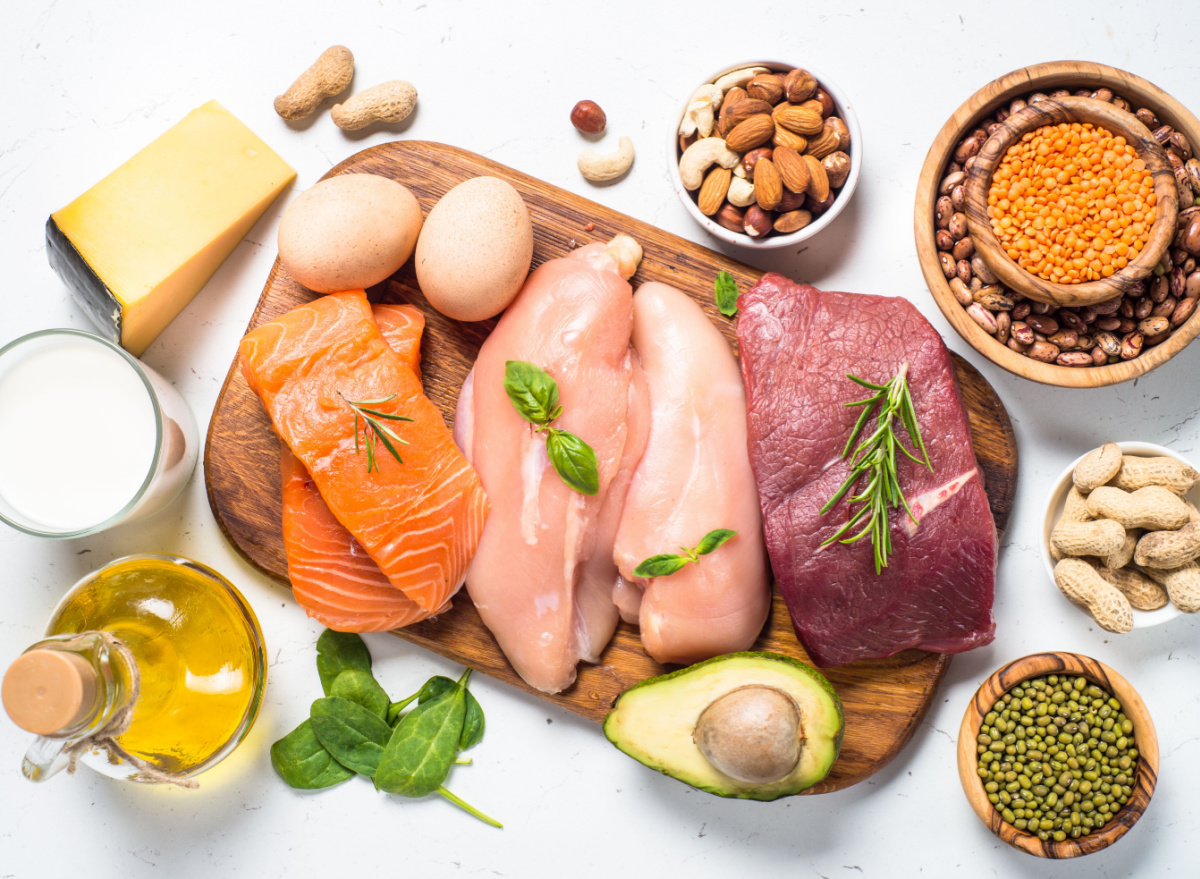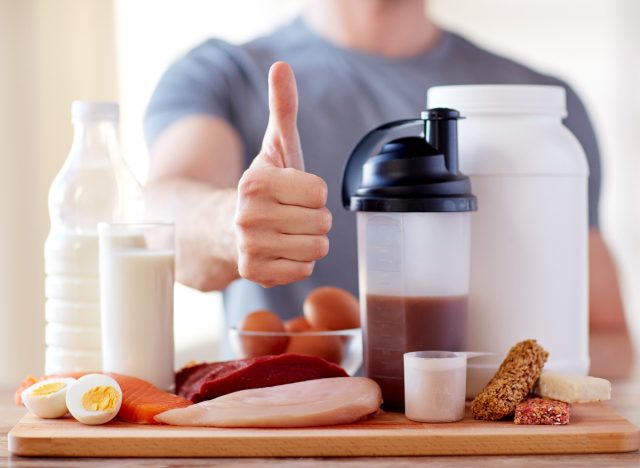Protein May Be the Key To Sustainable Weight Loss—Here’s What the Science Says

For decades, experts believed that weight loss was merely a numbers game—burn more calories than you eat and watch the pounds melt away. And while it’s true that energy balance matters to the number on the scale, recent research shows that the type of calories you consume may have a significant impact. Specifically, the amount of protein you eat might mean the difference between an effective weight loss strategy and an ineffective one.
So is it really worth loading up on meats, eggs, and protein bars if you want to slim down? It’s possible. Here’s a look at what the science has to say about eating more protein for weight loss. (Also, don’t miss our list of the 6 Best High-Protein Foods for Weight Loss.)
Protein is satiating
It’s long been known that, of the three macronutrients—fat, carbs, and protein—protein is the most satiating. As it passes through your digestive tract, protein’s amino acids prompt your body to release hormones that activate the satiety centers in your brain. This creates a feeling of long-lasting fulness that can tide you over between meals, eliminating the desire to nibble extra calories.
Protein burns more calories while digesting

Another selling point for protein is that compared to other macronutrients, it burns more calories merely by digesting.
“Protein has a higher thermic effect of food (TEE), meaning that it takes more calories to digest and metabolize than carbs and fat,” says Jen Scheinman, MS, RDN, CDN. Check out the 9 best high-protein snacks for rapid weight loss here.
Protein helps you retain muscle
Wouldn’t it be nice if while losing weight you could also dictate which parts of your body would shrink and which would maintain their size? Unfortunately, that’s not the case.
“Weight loss is often coupled not only with fat loss, but also muscle loss,” points out Justine Chan, MHSc, RD, CDE, founder of Your Diabetes Dietitian.
The good news: Protein helps retain muscles where you want them.
“Adequate protein helps you build and maintain muscle strength, which declines after the age of 30,” she adds.
Protein helps reduce cravings

On a weight loss journey, between-meal cravings can derail your best intentions. But the right mix of macros could stave them off.
“Pairing protein with whole grain carbs keeps your blood sugars steady, keeps your energy levels good throughout the day, and slows the absorption of sugar from your stomach into your bloodstream, which may help keep your blood sugar from skyrocketing and ward off food cravings,” says Moushumi Mukherjee, MS, RDN.
The bottom line
The research is in, and it’s convincingly pro-protein for weight loss. A 2020 study, for example, found that a high-protein diet was a safe and effective method for losing weight and preserving muscle mass, while another from 2017 concluded that people on a higher-than-average protein diet lost more weight than those on a standard protein diet.
As you load up on meats, shakes for weight loss, or other proteins, just keep in mind that it is possible to get too much of a good thing. For a healthy adult who lives a relatively sedentary lifestyle, the recommended amount of daily protein is about 0.8 grams per kilogram of bodyweight. Furthermore, a rule of thumb for the “tolerable upper limit” of protein consumption is around 3.5 grams per kilogram of bodyweight.








